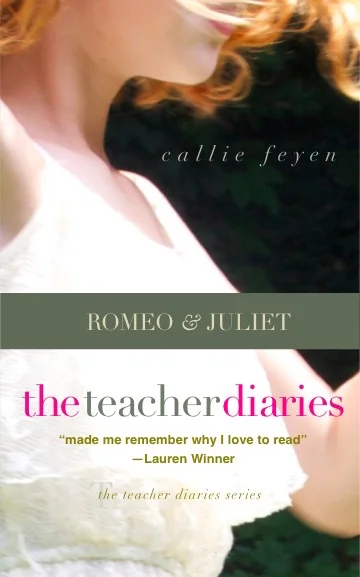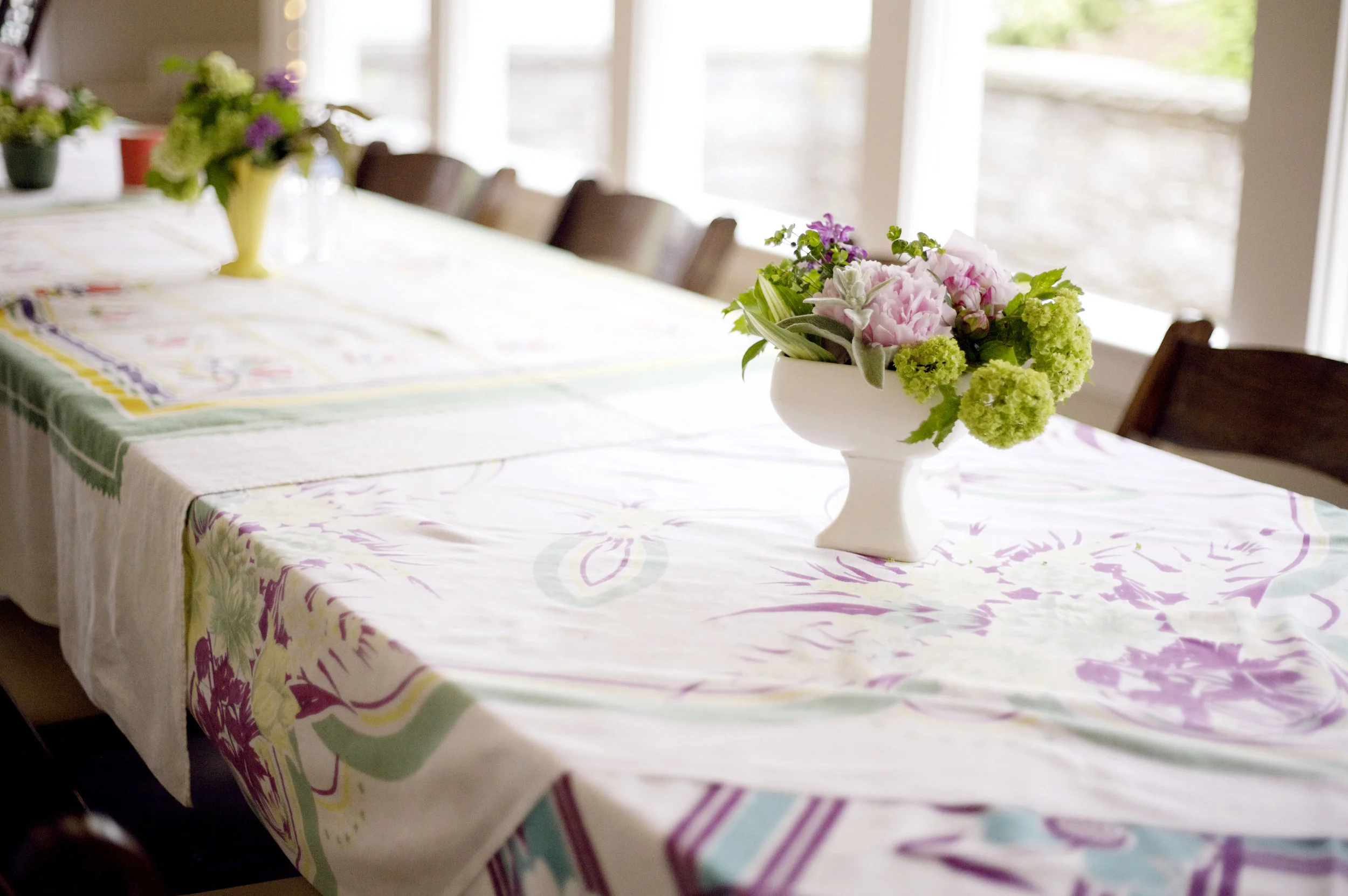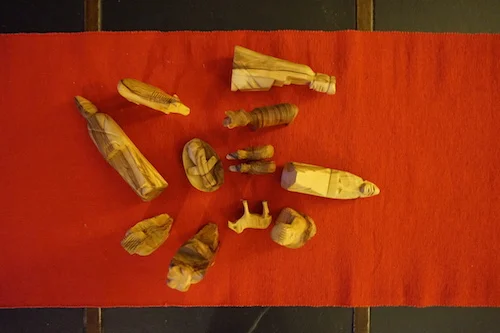Where's My Daughter? Call Her Forth
This is an excerpt from The Teacher Diaries: Romeo & Juliet, published by T.S. Poetry Press.
It’s a few nights before Christmas. My mom and I are in the kitchen in the house I grew up in on Gunderson, near Chicago. She’s moving about, pulling food from the fridge, lifting plates out of cupboards, setting out napkins and wine glasses.
I’m standing in the same place I’ve always stood since my parents re-did the kitchen when I was 14, at the counter that opens to the dining room. I can see the outside—the oak trees, the streetlights that flickered on well before the 6 o’clock rush of Oak Park residents walking home from the El. December in the Midwest grows dark early. You can feel it at 3:30; the heavy cold presses on your shoulders as the barely blue sky fades quickly to grey, and then a crystal black so cold it’s like walking into ice. The streetlights shine for those returning from the city, and the night glimmers.
I am a brand-new mama. My daughter, Hadley, is two months old and asleep upstairs. My mom is basking in first-time grandma-ness like a gal who’s just been asked for her hand in marriage. She is effervescent, and soon Hadley will be up and friends will be over, the wine will be poured, and the house will be pulsing with celebratory oohs and aahs as Hadley is passed around.
My mom puts hummus and olives, cheese and crackers on a wooden slab in front of me. The library lights next door turn off for the evening, except for the security lights that cast a glow on the books like a blanket. I can see those lights and the books through my bedroom window. The Els rush by quickly now and I think they’re cold, too. I wonder about checking on Hadley when the door opens. It is Mrs. Carlson.
“Are you ready to laugh your ass off?” she asks, removing her gloves ever so daintily.
“Always,” my mom says, uncorking the wine and pouring a glass for her dear friend.
My mom and Mrs. Carlson have been friends since her daughter, Sarah, and I met our freshman year of high school. While Sarah and I had done our fair share of teenage girl mischief, my mom and Mrs. Carlson were known to get rowdy as well. And they did it in public.
The two of them used to rollerblade around town, with this ridiculous equipment on. They were known to blade all the way to the high school football field, where Sarah and I were frequently practicing our Drill Team routines. They’d yell hello as loud as they could. Neither of them knew how to stop so they’d roll and usually fall onto the grass, or crash into a fence, resulting in howls of laughter.
“Our moms are here,” I’d tell Sarah between clenched teeth, not moving a muscle in their direction.
“Oh my gosh,” Sarah would say, following suit. “Ignore them.”
You couldn’t ignore either of them, though. Nobody could. They were a force: a loud, incredibly witty, stunningly stylish force.
“Callie, sweetie,” Mrs. Carslon says as she makes her way towards where I’m standing. I smile and watch her expectantly. She puts her hands on either side of my face, and the smile she’s giving me seems to lift her hair. “You’re a mama!”
The way she says it makes me feel like I’ve done something, like I am something.
She lifts her glass. “Cheers,” she says, and my mom and I reciprocate, then Mrs. Carlson goes on to tell us a story that, indeed, has us laughing so hard, we could count it as cardio.
It’s easy to wince when reading the Nurse’s debut scene.
In fewer than fifty lines, we learn of her daughter’s death, and she shares the very palpable details of how she weaned Juliet, as well as her body’s reaction to that weaning. We learn that her husband is also gone, and we hear a little anecdote about Juliet’s toddler years. After my first reading of the Nurse’s speech, I wrote in the margin, “Girlfriend could’ve started a blog.”
Shakespeare’s Nurse is off-color, and she gives far more information than she needs to. She is also the person Juliet trusts most. When I teach Romeo and Juliet and we get to this part in the play, before we read, I give my students a warning.
“She says way too much, and she might make you squirm a bit.”
This, of course, makes them want to read on. Dangle any hint of something taboo in front of a middle school student, and they’ll devour it.
I go on to explain, though, that I believe it is her stories, perhaps even the inappropriate and overloaded details of her stories, that make Juliet trust her and tell her things.
“She’s kind of like me,” I tell my students, and they look at me, shocked at the comparison.
“C’mon,” I’ll say, “you know I have a story for everything.”
They laugh, thinking they are the ones who throw me off course, taking up class time, when I meticulously plan for it.
I offer my stories—my vulnerable, awkward, growing-up stories—because I’m leveling the playing the field. I want to bear some of what it is my students are going through so they will trust themselves to get at their stories. I’m attempting to pull something out of them, as the Nurse does for Juliet, as Mrs. Carlson has done for me.
The opening line in Act 1, Scene 3 is a question and a command. “Where’s my daughter?” Lady Capulet asks the Nurse. “Call her forth to me.” We can interpret that line literally. Mrs. Capulet doesn’t know where her kid is and is asking the Nurse to help find her.
I think this line can be interpreted figuratively as well. That is, we mothers don’t always understand what’s going on with our children—their experience is not our own. Recognizing this can be scary, when we see them on the brink of adolescence, marriage, motherhood. Where’s the daughter we once knew? Who is she now? How much of this experience do we help her navigate? How do we help her become who she’s going to be? Why not bring in our friends to call forth something in our children.
Before Lady Capulet tells Juliet to “Read o’er the volume of young Paris’ face,/And find delight writ there with beauty’s pen,” before Juliet falls for Romeo on the night she is to look at Paris, before the Nurse and the Friar take part in this star-crossed romance, let’s look at the Nurse in all her vibrant, story-telling glory. Let’s watch her and Juliet together, then nod along with Lady Capulet when she tells the Nurse to “come back again,/ I have remember’d me,” because it can be our friends who not only call forth something in our children, but help us remember a part of ourselves we’ve forgotten.
Mrs. Carlson, my mom, and I stand together in the kitchen for a few minutes before the rest of the company arrives—these two women sharing the space where I’d been listening to and wondering about the night, each of them with an arm on my shoulders, making me laugh.
Hadley wakes up, and I bring her downstairs to show her to friends who’ve watched me grow up. There’s Mrs. Padour, who made pancakes in the shape of my initials while her daughters and I watched, sleepy-eyed from staying up too late, and happy from the sizzle of buttermilk and flour, eggs and vanilla shaping itself into a perfectly fluffy C. There’s Mrs. Roldan, who, on a Saturday night when Celena and I were broken-hearted over a boy, sat with us on her bed and told us her own broken-hearted boy stories. Mrs. Todd is here, too. She gave me one of my first jobs, helping her sell tea in her tea store. I loved lifting the big glass jars, gently scooping up jasmine, Ceylon, or, my favorite, cinnamon spice tea leaves and spilling them into golden bags for customers. And at lunch time, Mrs. Todd and I would sip Diet Coke and eat our sandwiches and giggle about one thing or another we found silly. Now Mrs. Carlson is smiling, her eyes twinkling, and I think she’s coming up with her next story. Mom smiles, too.
All of them, like the Nurse, calling me forth.



















